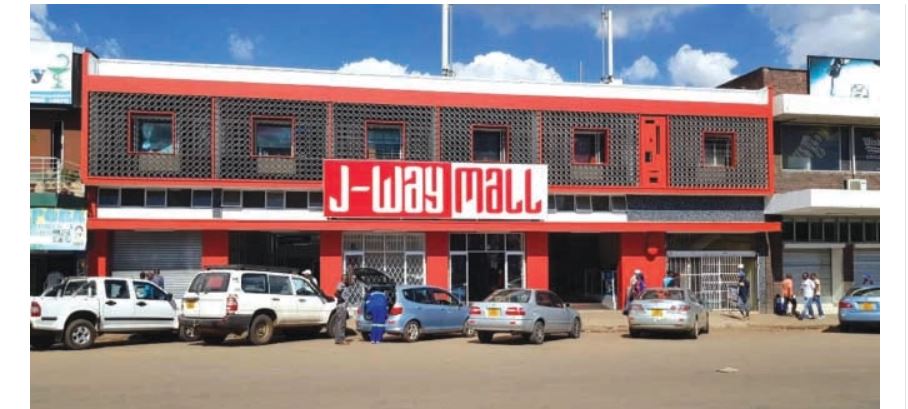Zimbabwe's manufacturing industry is bleeding to death after the sector contracted by a negative 4,9 percent in 2014, latest statistics from the central bank show.
In its quarterly economic report released yesterday, the Reserve Bank of Zimbabwe (RBZ) attributed the massive decline in manufacturing output to "persistent challenges affecting the sector, which include antiquated plant and machinery, inflexible labour laws, influx of cheap imports, high cost of production, weak effective demand, as well as persistent liquidity constraints".
This comes as the country's economy has been on a free fall since 2013 when President Robert Mugabe's Zanu PF won elections, which were heavily disputed by the opposition.
Zimbabwe's gross domestic product that averaged 6,9 percent between 2009 and 2012, decelerated to 3,7 percent in 2013 and 3,1 percent last year.
Statistics from the World Bank and the International Monetary Fund show that the country's economy is likely to grow by 2,8 percent this year.
The central bank said despite the growth in agriculture, which has positive downstream effect on the manufacturing subsectors such as foodstuffs, drinks, tobacco and beverages, clothing and footwear, these subsectors have remained subdued.
"In addition, the textile and clothing industries are facing stiff of foreign competition, especially from South Africa, where subsidies, export incentives and tariff protection are still in existence," said the RBZ.
Delta Beverages - the main producer of both alcoholic and non-alcoholic beverages in the country - registered a 10 percent decline in revenue for the period March to December 2014, on account of depressed consumer spending across the product mix.
Declines in volumes were recorded for lager beer (25 percent) and sparkling beverages (nine percent).
The positive growth in consumption of sorghum beer (14 percent) and alternative beverages, which comprise maheu and the new dairy-based beverages (16 percent), however, was dampened by constrained brewing capacity and power outages.
"The weak performance across all subsectors of the manufacturing industry was clearly demonstrated by the fall in capacity utilisation among the manufacturing industries, company closures and increasing number of employees that were retrenched in 2014," read part of the report.
Capacity utilisation in the manufacturing industry had been trending downwards, since 2012, weighed down by antiquated plant and machinery, cheap imports and high production costs, among other constraints.
According to the Confederation of Zimbabwe Industries (CZI), average capacity utilisation in the manufacturing sector declined from 44,9 percent in 2012 to 39,6 percent in 2013. Capacity utilisation further declined by 3,3 percentage points, to 36,3 percent in 2014.
"The deterioration in capacity utilisation is also partly a result of low Foreign Direct Investment (FDI) and portfolio inflows in 2014, compared to 2013. Net FDI decreased to $300,6 million in 2014, from $373,1 million in 2013," said the central bank.
"Similarly, net portfolio investment flows declined to $114,2 million in 2014, from $96,3 million in 2013," added RBZ.
As a result of viability challenges, the country also witnessed an increasing number of firms being placed under judicial management in the last three years.
According to data obtained from the Master of High Court, companies placed under judicial management rose from 51 in 2013 to 60 by the end of 2014, whilst 87 companies were liquidated in 2014, compared to 44 in 2013.
The apex bank noted that a significant number of companies were also failing to pay their staff on a regular basis, accumulating salary arrears, further adversely impacting on aggregate demand.
In addition, some firms resorted to downsizing and restructuring.
"These actions partly resulted in extensive job losses in the formal sector. According to the Retrenchment Board, retrenchments increased from 2 376 workers in 2013 to 3 881 workers in 2014, with the last quarter of 2014 recording 1 038 job losses through retrenchment," said RBZ.
A total of 13 647 workers were retrenched between 2011 and September 2014.
Company closures have been attributed to a number of economic bottlenecks such as the liquidity crunch and the attendant lack of credit, obsolete equipment, low aggregate demand, cheap imports and non-performing loans.
Foreign direct investment, which has a positive impact on market liquidity, remains subdued due to the perceived country risk.
- dailynews
 Zimra imposes US$2m penalty on OK Zimbabwe
Zimra imposes US$2m penalty on OK Zimbabwe  South Africa ripe for a coup
South Africa ripe for a coup  India dumps US Treasury bills
India dumps US Treasury bills  Zimbabwe's dollar stock exchange surges 45%
Zimbabwe's dollar stock exchange surges 45%  Gold edges up as traders await guidance
Gold edges up as traders await guidance  fastjet introduces Bulawayo-Victoria Falls flights
fastjet introduces Bulawayo-Victoria Falls flights  Young Investment Professional (YIP) Graduate Programme 2019
Young Investment Professional (YIP) Graduate Programme 2019 










 Young Investment Professional (YIP) Graduate Programme 2019
Young Investment Professional (YIP) Graduate Programme 2019
Editor's Pick